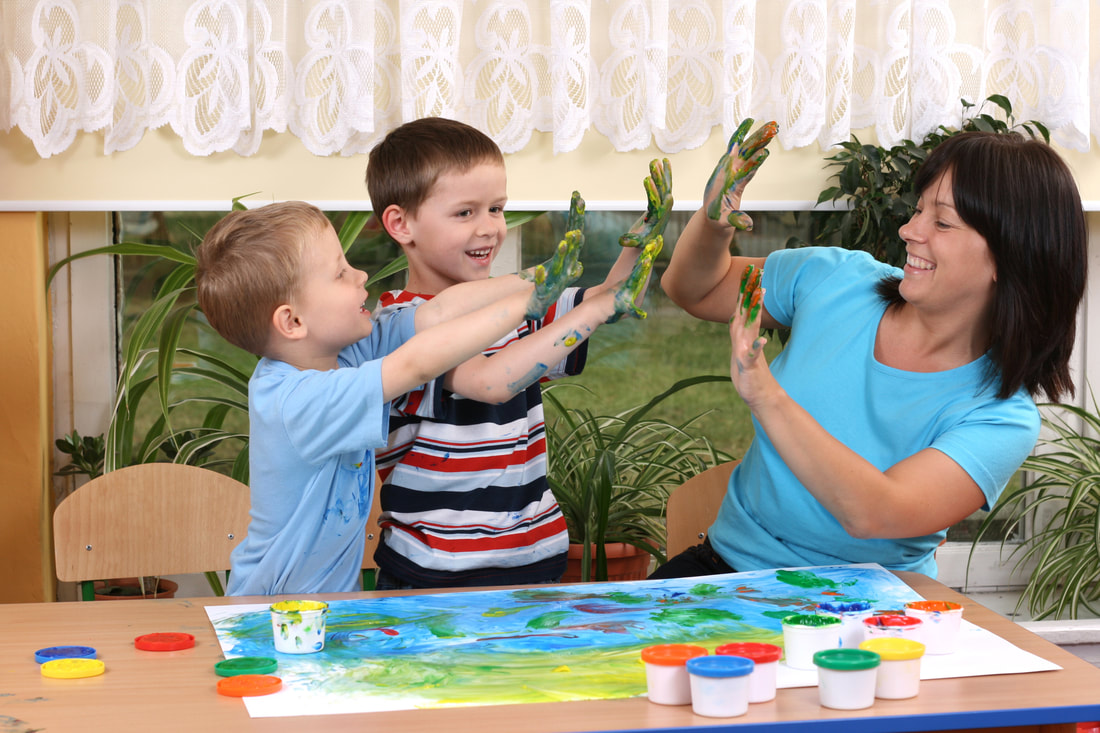Preschool Emotional Development |
Page 15 |
A positive, close relationship with the preschoolers in your program is needed to promote their emotional development.
Preschoolers are beginning to learn about feelings. You can help them to be aware of what they are feeling and give their feelings names. Help children feel comfortable with their feelings and find positive ways of expressing them. Preschoolers enjoy surprises, jokes, and celebrations of all kinds. In general they are purposeful, outgoing, friendly, and a joy to be around. Many preschoolers develop fears. Typical fears at this age include the dark, animals, imaginary beings, sounds, and new situations. You will need to acknowledge these fears respectfully and help the child to understand them. You can use children’s books to facilitate discussion about these normal fears.
To meet the emotional needs of preschoolers, make sure you:
- Create a positive, close relationship with each child in your care
- Provide structure and routine throughout the day, and allow plenty of time for transitions
- Allow time for children to talk about their interests and what they see and do
- Use children’s names frequently in songs and games
- Display children’s art work and photos of children and their families
- Encourage children to draw pictures and tell stories about self, family, and cultural practices
- Provide many opportunities for children to initiate activities, develop and demonstrate control of their bodies, and practice self-help skills
- Help children deal with feelings and strong emotions in positive ways
Say, “It’s okay to be angry, but it’s not okay to hurt people. Use your words to tell me about it, or perhaps you would rather draw a picture or be alone for awhile.”
Course Navigation Menu
|
|



